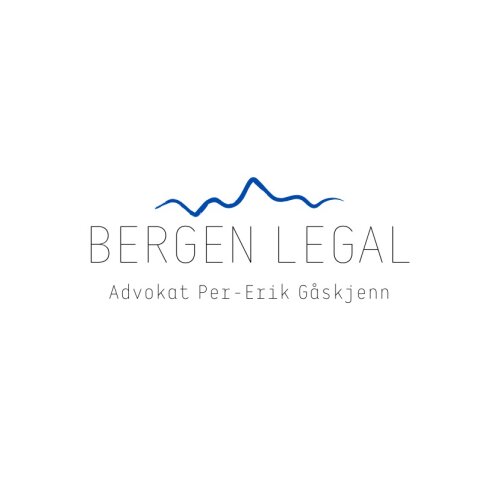Best Child Visitation Lawyers in Bergen
Share your needs with us, get contacted by law firms.
Free. Takes 2 min.
Free Guide to Hiring a Family Lawyer
List of the best lawyers in Bergen, Norway
About Child Visitation Law in Bergen, Norway
In Bergen, Norway, child visitation, also known as contact rights or access rights, is an essential component of custody and parental responsibilities. It primarily focuses on ensuring that a child maintains a healthy and consistent relationship with both parents, regardless of the parents’ marital status. This legal framework emphasizes the child’s best interests, facilitating arrangements that support the child's emotional, social, and developmental needs. The process of establishing visitation rights involves negotiations and, if necessary, mediation or court intervention to ensure fair and responsible access for the non-custodial parent.
Why You May Need a Lawyer
Seeking legal assistance in child visitation matters can be crucial for several reasons:
- If parents are unable to agree on visitation schedules, a lawyer can provide mediation support or represent a parent in court.
- In cases where visitation rights are being denied or disputed, legal intervention may be necessary to enforce or modify existing agreements.
- International relocations or child abduction cases may require legal help to ensure continued access to the child.
- Complicated family situations, including issues of domestic violence or substance abuse, often necessitate professional legal guidance.
- When seeking to modify existing visitation arrangements due to changes in circumstances, a lawyer can facilitate the process legally and efficiently.
Local Laws Overview
The laws regarding child visitation in Bergen, Norway, are grounded in the Children Act, which places the child's welfare at the forefront. Key aspects include:
- Best Interests of the Child: The overarching principle in determining visitation is the child's welfare and best interests.
- Parental Agreements: Parents are encouraged to reach amicable agreements on visitation schedules, often facilitated by mediation services.
- Court Intervention: If parents cannot agree, the courts can lay down specific visitation arrangements, ensuring fair access based on circumstances.
- Modification of Arrangements: Either parent can request changes to visitation agreements if significant changes in circumstances occur.
- Enforcement of Rights: Legal mechanisms exist to enforce visitation rights if they are unjustly denied.
Frequently Asked Questions
1. What factors do courts consider in determining visitation rights?
The primary factor is the child's best interests, which include the child's age, health, emotional ties with each parent, and the stability of the home environment.
2. Can visitation rights be denied?
Visitation rights can be restricted or denied if there are concerns for the child's safety or welfare, such as cases of abuse or neglect.
3. How can I modify an existing visitation arrangement?
You can request modification by filing a motion with the court, demonstrating a significant change in circumstances that warrants a revision of the current order.
4. What is the role of mediation in visitation disputes?
Mediation serves as a less adversarial approach to resolving disputes, encouraging parents to negotiate and form mutually agreeable visitation schedules.
5. What if the other parent violates the visitation agreement?
If a visitation agreement is violated, you may file a petition with the court for enforcement or seek legal assistance to address the breach.
6. Are grandparents entitled to visitation rights?
Grandparents may request visitation rights, but these are generally secondary to the parental rights and are granted based on the child's best interests.
7. How long does the legal process take for establishing visitation?
The timeline can vary significantly depending on whether an agreement can be reached amicably or if the matter involves court intervention.
8. Can children decide their visitation schedule?
While children’s preferences are considered, especially as they age, the ultimate decision is made based on their welfare and best interests.
9. Do I need a lawyer to file for visitation rights?
While not mandatory, having a lawyer can be beneficial in presenting your case effectively and navigating the legal complexities involved.
10. What should I do if I suspect my child is being harmed during visitation?
If you suspect harm, contact child protective services and seek immediate legal advice to ensure your child's safety.
Additional Resources
Several resources can assist individuals seeking information or assistance regarding child visitation in Bergen:
- Norwegian Directorate for Children, Youth and Family Affairs (Bufdir): Provides comprehensive guidelines and services for parents.
- Family Counselling Services (Familiekontor): Offers mediation and conflict resolution services.
- Local Legal Aid Centers: Provide assistance for those unable to afford private legal representation.
- Norwegian Courts Administration (Domstoladministrasjonen): Offers information related to the legal process and court proceedings.
Next Steps
If you require legal assistance with child visitation issues:
- Assess Your Situation: Consider whether mediation or negotiation can be a first step in resolving the issue.
- Consult a Lawyer: Reach out to a lawyer specializing in family law to discuss your case and understand your rights and responsibilities.
- Gather Documentation: Compile relevant documents such as previous court orders, communication records, and any evidence related to the child's well-being.
- File Necessary Petitions: With legal assistance, draft and file any petitions required for the establishment, modification, or enforcement of visitation rights.
- Utilize Support Services: Take advantage of mediation and counseling services for additional support through the process.
Lawzana helps you find the best lawyers and law firms in Bergen through a curated and pre-screened list of qualified legal professionals. Our platform offers rankings and detailed profiles of attorneys and law firms, allowing you to compare based on practice areas, including Child Visitation, experience, and client feedback.
Each profile includes a description of the firm's areas of practice, client reviews, team members and partners, year of establishment, spoken languages, office locations, contact information, social media presence, and any published articles or resources. Most firms on our platform speak English and are experienced in both local and international legal matters.
Get a quote from top-rated law firms in Bergen, Norway — quickly, securely, and without unnecessary hassle.
Disclaimer:
The information provided on this page is for general informational purposes only and does not constitute legal advice. While we strive to ensure the accuracy and relevance of the content, legal information may change over time, and interpretations of the law can vary. You should always consult with a qualified legal professional for advice specific to your situation.
We disclaim all liability for actions taken or not taken based on the content of this page. If you believe any information is incorrect or outdated, please contact us, and we will review and update it where appropriate.











